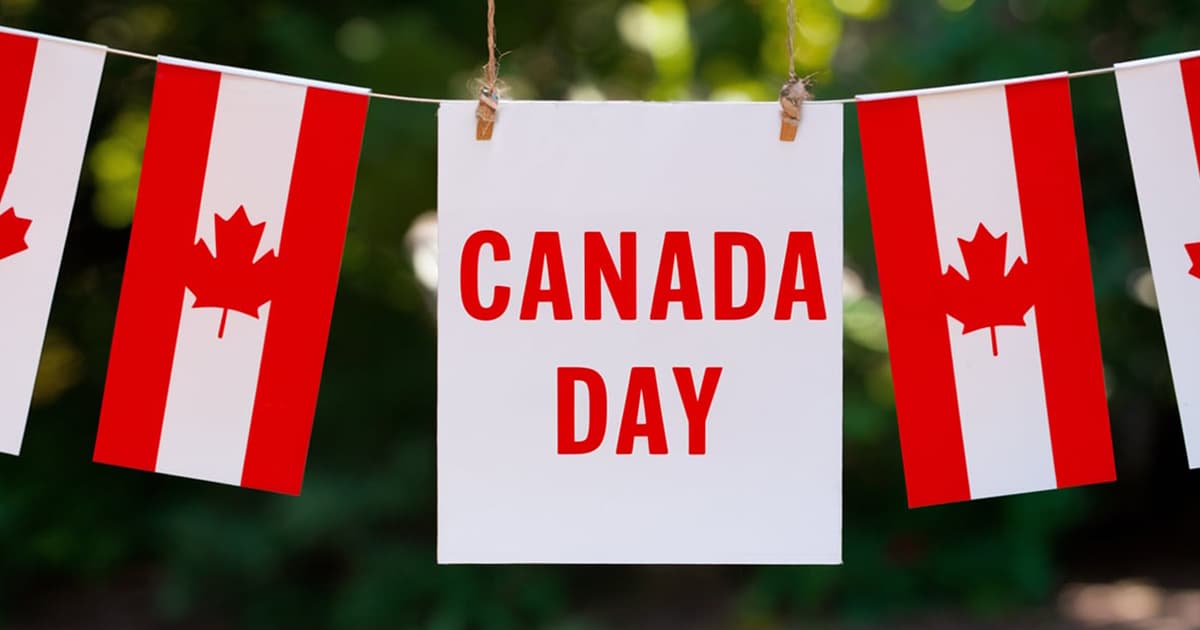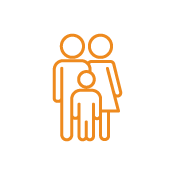Let's Celebrate Canada Day!

What do you know about Canada? Did you know that on July 1, 2024, Canada turns 157? Our country’s age dates to Confederation on July 1, 1867, when Canada officially became a country.
The name “Canada” likely comes from the Huron-Iroquois word “kanata,” meaning “village” or “settlement.”
Let’s celebrate Canada Day with some interesting facts:
Canada is the second largest country in the world by land mass and we’re renowned for our diverse landscape, rich history, and multicultural society.
History
Canada's journey to nationhood began with the passage of the British North America Act by the British Parliament, and on July 1, 1867, Canada became a country.
Interestingly, Canada did not have its own flag until nearly a century later, when the iconic red and white maple leaf design was adopted on February 15, 1965.
Did you know?
- Alexander Graham Bell invented the telephone in 1876 in Canada.
- During what’s called the Canadian Maple Syrup Heist of 2011-2012, nearly 3,000 tons of maple syrup valued at $18.7 million CAD was stolen from a storage facility in Quebec.
- There are at least three versions of the Canadian National Anthem that have been written.
- The King of England still holds treaties for a vast stretch of the Canadian wilds to this day.
- In 1917, the largest accidental explosion before the atomic bomb occurred in Halifax, Nova Scotia. A munitions ship collided with another vessel in the harbor, causing a massive blast that devastated the city and killed nearly 2,000 people.
- During the Prohibition era in the United States (1920-1933), Canada played a significant role in supplying illegal alcohol. Canadian rum-runners smuggled liquor across the border, often evading law enforcement in the process.
Geography
Canada boasts the longest coastline in the world, stretching over 202,080 kilometres. The Trans-Canada Highway, one of the longest national highways globally, spans over 7,800 kilometers (4,860 miles) and connects the Pacific and Atlantic coasts, showcasing Canada's diverse landscapes from rugged mountains to rolling prairies.
If Canada's numerous lakes were removed, it would be the fourth largest country in the world; with them, it stands as the largest country in the Western Hemisphere and the second largest globally. But despite its vast size, most Canadians live within about 240 kilometres (just 150 miles) of the US border!
The reason why? It’s cold up north. Canada's climate can be extreme, particularly in the Yukon, where the village of Snag recorded a temperature of -63°C (-81.4°F) in 1947, as cold as the surface temperature of Mars.
Canada is home to vast wildernesses and natural resources. Some of the Canadian national parks are even larger than small countries in other parts of the world.
For example, check out Wood Buffalo National Park in Alberta, which is bigger than Switzerland and Denmark put together at more than 44K square kilometers! All together, Canada is home to about 10% of the world’s forested area.
Society
Canada is celebrated for its multiculturalism and diversity. In 2016, over 250 ethnic ancestries were reported to live here. The country is officially bilingual, with English and French being the two languages official languages.
Canada's national sports reflect its cultural diversity: hockey is the national sport in winter, while lacrosse holds this title in summer.
The culinary scene also boasts unique dishes like poutine, a Quebecois dish made from French fries, cheese curds, and brown sauce. Nearly every province has its own unique specialty, and each city proudly presents their own collection of fantastic restaurants. Some of the most famous foodie destinations are in Montreal, Toronto, and Vancouver.
Canadians are often stereotyped as being extraordinarily polite, but they can also have some quirky and shocking traditions. One testament to this reputation of bravado is the Sour Toe Cocktail in Dawson City, Yukon, where patrons can drink a whiskey cocktail garnished with a real (ethically donated) human toe. Yes, really!
Political system
Canada operates as a constitutional monarchy with the monarch serving as the head of state. Its parliamentary system comprises two chambers: the elected House of Commons and the appointed Senate. The House of Commons is the primary legislative body, while the Senate rarely introduces or blocks legislation.
Canada has three major political parties: the Conservatives, the Liberals, and the New Democrats (NDP).
The Liberals’ Justin Trudeau is prime minister. The NDP’s leader is Jagmeet Singh and Pierre Poilievre is head of the Conservatives.
What’s the ‘Whisky War’?
The "Whisky War" between Canada and Denmark over the ownership of Hans Island is a fun-loving testament to Canada's peaceful approach to international disputes, where each country planted their own flag on a disputed island territory in the Atlantic every few months, removed the others’ flag, and left a bottle of Danish or Canadian whiskey for the other as a token of friendly rivalry.
The so-called war, which began in the 1980s, ended in 2022. A treaty was signed that divides the 1.2-square-kilometre island roughly in half, creating a land border between Canada and Denmark (Greenland, or Kalaallit Nunaat, is an autonomous country within Denmark) and the world’s longest maritime boundary at nearly 4,000 kilometres.
The treaty also ensures Inuit in both countries will be able to move freely about the island and surrounding waters, an important hunting ground since the 14th century.
At the treaty signing, the two countries exchanged bottles of alcohol for the last time.
Indigenous heritage
Canada is home to numerous Indigenous nations and languages, reflecting its rich and diverse heritage. There are over 70 Indigenous languages still being spoken across Turtle Island (the Indigenous term for North America).
Canada’s Indigenous peoples have a profound connection to the land, and their cultural practices and languages are an integral part of this country’s identity.
Captivating Canada
Canada is a country of remarkable contrasts and rich cultural heritage. From its awe-inspiring landscapes and frigid climates to its vibrant multicultural society and political stability, Canada offers a unique blend of tradition and modernity. Whether you're exploring its natural wonders or its historical milestones, Canada is a nation that continues to captivate and inspire.
Happy Canada Day!







